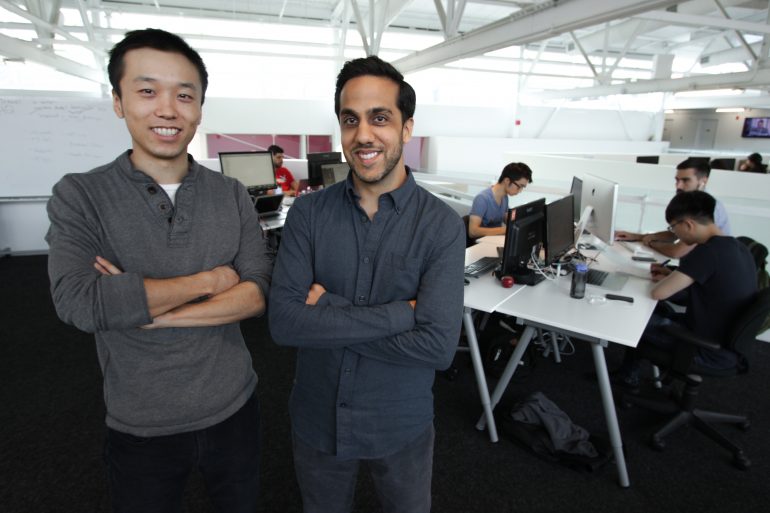Toronto-based SnapTravel, which lets users find and book hotels over SMS and Facebook Messenger, has just raised a $10 million Series A funding round, according to a report from TechCrunch.
SnapTravel’s funding was led by iNovia Capital. The round also saw participation from seed round investors Lightbank, Bee Partners, Hedgewood, and strategic investor and Expedia board member Peter Kern, among others. SnapTravel raised a $1.2 million seed round in July 2016.
Co-founded in 2016 by Henry Shi and Hussein Fazal – who sold AdParlor to Adknowledge back in 2011 – SnapTravel allows users to book hotels at discounted rates through SMS, Facebook Messenger, and Slack.
The half-bot, half-human service goes back and forth with users about the city they’re travelling to, the dates, and their budget to provide them with the best hotel options.
The”bot” part of SnapTravel helps with onboarding and answering simpler questions, while human agents are available to help with trickier situations, such as when a user’s flight is cancelled, but they’ve booked a non-refundable hotel. Users can also ask human agents questions, like if the hotel is pet-friendly or if you can get adjoining rooms.
“We’re building a relationship with the customer because we’re chatting with them over a channel that’s very intimate.”
SnapTravel plans to use the funding to invest further in its Natural Language Processing capabilities to reduce users’ reliance on human agents as the company scales, meaning that in the future, an automated bot would be able to understand a conversational input from a user. Without needing a human to translate that into a booking request, SnapTravel would then send the customer to the booking form for the right hotel and make their payment through Messenger.
SnapTravel also plans to use the funding to expand its team to 20 to 25 people, and hopes to reach users through platforms like WeChat and Line.
According to Shi, SnapTravel’s human agents are key to the customer-hotel relationship. He said that hotels honour SnapTravel agent’s special requests around 70 to 80 percent of the time, and the agents are able to upgrade customers to better rooms around 25 percent of the time.
“We’re 100 percent free to the customer…the way we make money is the commission on the hotels,” said Shi. “But we’re building a relationship with the customer because we’re chatting with them over a channel that’s very intimate, like SMS or Messenger. For us, it’s a conversation – and that conversation doesn’t stop when you make a purchase. It goes from search to purchase to upgrade to even post-checkout.”


